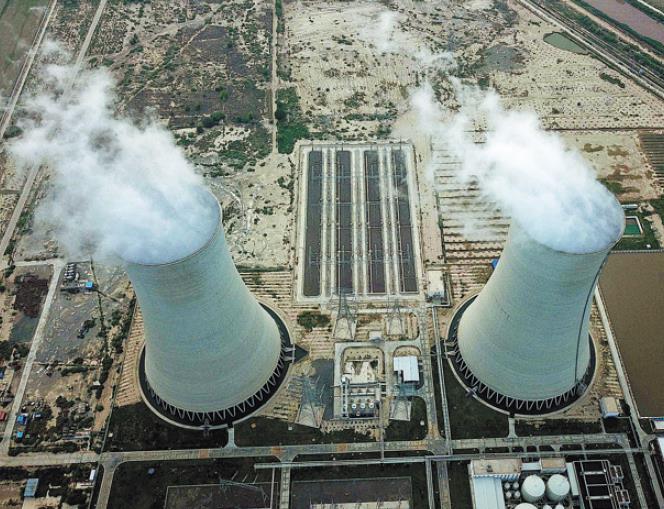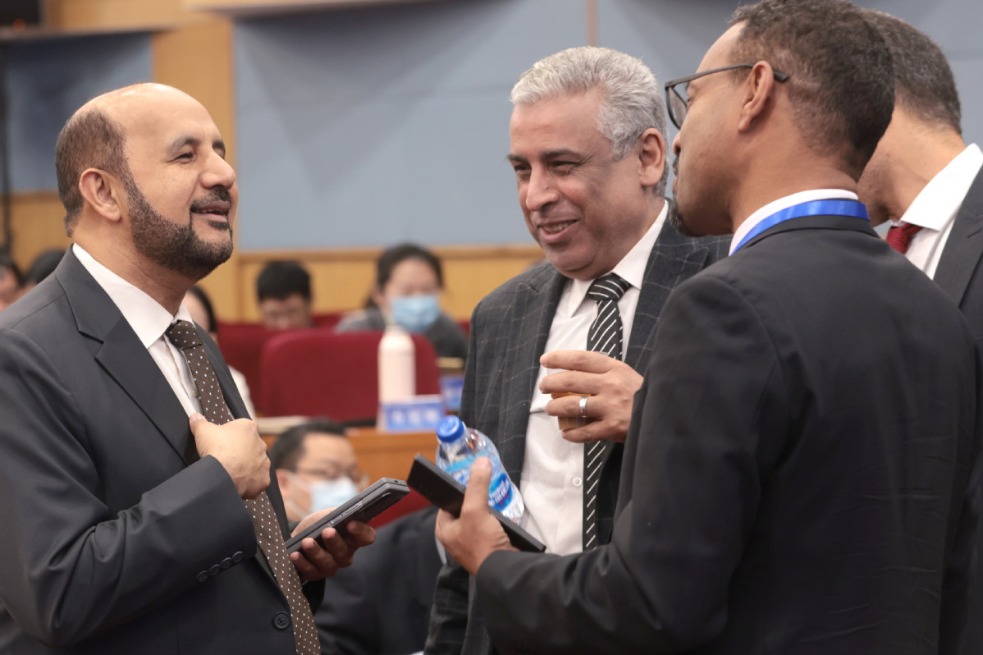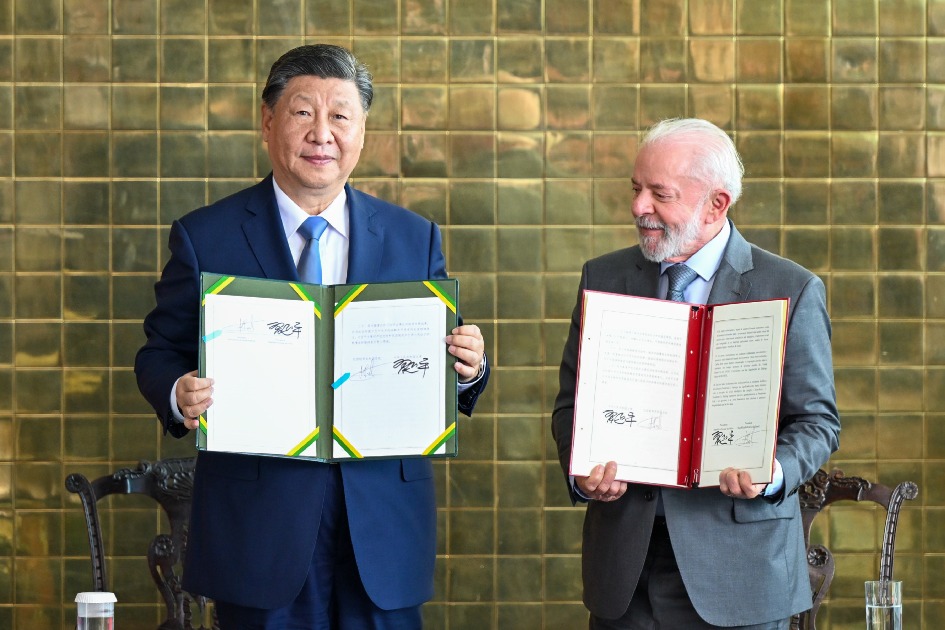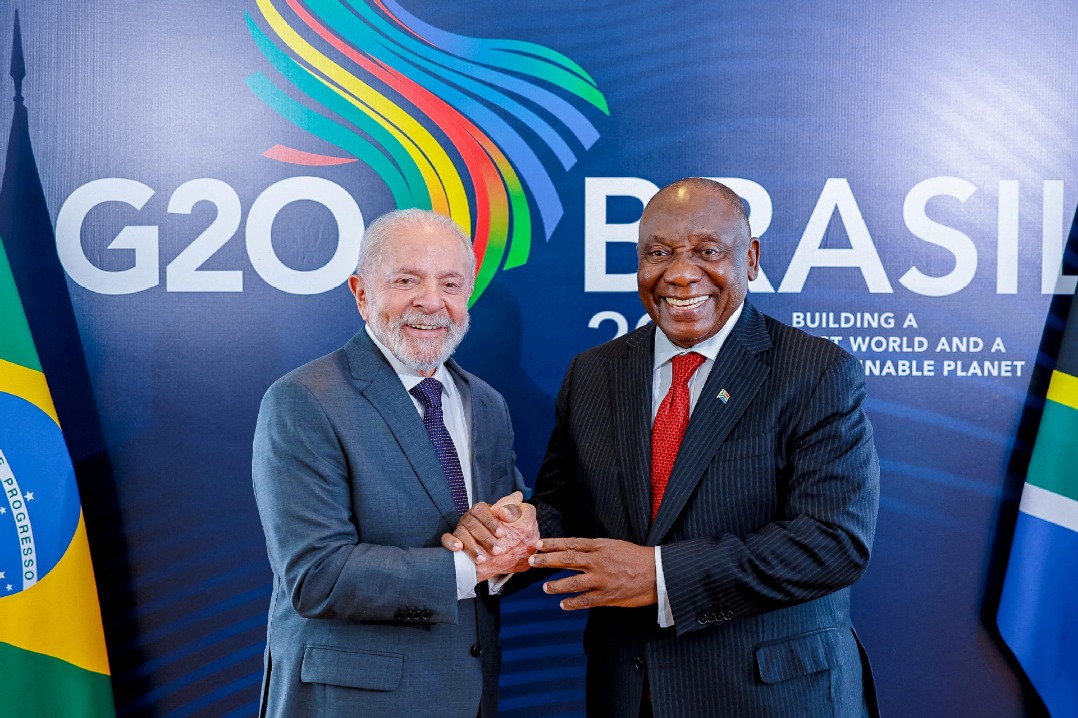Outbreak poses no impediment to power plant
By Kaswar Klasra in Islamabad | China Daily Global | Updated: 2020-06-10 09:07

Not a single case of COVID-19 reported so far at coal-fired station in Pakistani's city of Karachi
For Fazal Rahim, a business manager at the Port Qasim Power Plant, 37 kilometers southeast of Karachi, capital of Pakistan's Sindh province, the pandemic was no impediment.
"COVID-19 has not slowed down the pace of our work," he said. "The credit goes to the management and workers, both Pakistanis and Chinese."
Out of a total of 1,060 employees at the plant, 768 are Pakistanis and 292 are Chinese.
"Stable operations continue at the power plant. Not a single worker has contracted the virus so far," said Xi Peng, deputy chief representative of China's Power Construction Corp. "We have made sure every worker complies with the standard operating procedures to keep the virus at bay."
"All employees have been taking precautionary measures, such as wearing masks in public places, washing hands frequently and avoiding large gatherings," Xi said.
Until now, the plant has reported no cases of COVID-19 and no suspected cases either.
The coal-fired power plant, an independent power producer, is one of the key energy projects on the China-Pakistan Economic Corridor that has been jointly developed by Powerchina Resources Ltd and Qatar-based investment company Al Mirqab Capital Ltd.
Once complete, it can meet the electricity needs of 4 million households.
"Since the operations began in April 2018, we have steadily increased the number of Pakistani employees, especially for technical operations," Xi said.
Local people are working at the plant as skilled laborers and logistics service providers.
Fazal is happy to work here. "The Chinese workers' dedication and commitment to work has almost transformed a dream into reality."
Hu Ling, a manager at the plant's corporate culture department, chose to stay at the plant during the Lunar New Year this year. "One needs to serve the company with devotion and enthusiasm," Hu said. "We have to accomplish the CPEC."
"I stay in touch with my family on video call," she said. "Although the epidemic is severe, I firmly believe that through wise decisions, the society's unity and strong support of the people from all walks of life, we can surely overcome the epidemic," she said.
"The CPEC is a priority," said Mohammad Saad, a senior Pakistani official. "We have made sure the COVID-19 pandemic doesn't affect the progress of projects under the CPEC."
Projects under the CPEC are in the process of completion.
Pakistani authorities said recently that work on the western route of the CPEC was in full swing. A four-lane expressway from Hakla near capital Islamabad to Dera Ismail Khan, a city in Khyber Pakhtunkhwa province in the northwest, is set to be completed next year.
It can cut travel time from 5 hours to 2.5 hours, said Asim Saleem Bajwa, a retired lieutenant general and special assistant to the prime minister on information and broadcasting.
Experts believe the CPEC's 292-km western route will help bring prosperity to some of the most underdeveloped regions in Pakistan.
"The potential of Gwadar port (Balochistan province) will not be fully realized until the western route of the motorway from Gwadar to Chaman (Balochistan province) is constructed. Thereafter, a majority of the Middle East countries would be connected," said Zhang Baozhong, chairman of China Overseas Ports Holding Co Ltd.
The COPHC Pakistan operates the Gwadar Port and the Gwadar Free Zone.
Work on the 874-MW Suki Kinari-KP Hydel Power Project is in full swing. "Unaffected by COVID-19,50 percent of the work (on the project) has been completed, the special assistant tweeted recently.
In Multan, a city in Punjab province, the Peshawar-Karachi Motorway project, built by China State Construction Engineering Corp, is the largest transportation infrastructure project under the CPEC.Since its opening on Nov 5 last year, it became the country's most advanced motorway.
"Our company values highly the health and safety of every employee," the Pakistan Observer newspaper quoted Muzzamil, the Pakistani logistics supervisor of the motorway project's HQ camp, as saying.
After the outbreak, the employees carried out epidemic prevention activities, conducted disinfection measures, and recorded everybody's temperature and health data every day.
All employees actively performed their duties and complied with the epidemic prevention requirements. "So far, there have been no cases of infection in our camp," he said.
Xiao Hua, general manager of the motorway project, told Pakistan Observer that they attach great importance to the life, health and safety of every employee.
"We shall always be cautious, strictly implement epidemic prevention measures, and make every effort to ensure the safe operation of PKM motorway," Xiao said.
On the eve of Eid al-Fitr, a holiday marking the end of Ramadan, the management ensured the supply of flour, peanut oil, milk and face masks to the families of Pakistani employees.
Earlier, the company donated 1 million rupees to the PIMS Hospital, Islamabad, through the All-Pakistan Chinese Enterprises' Association.
























